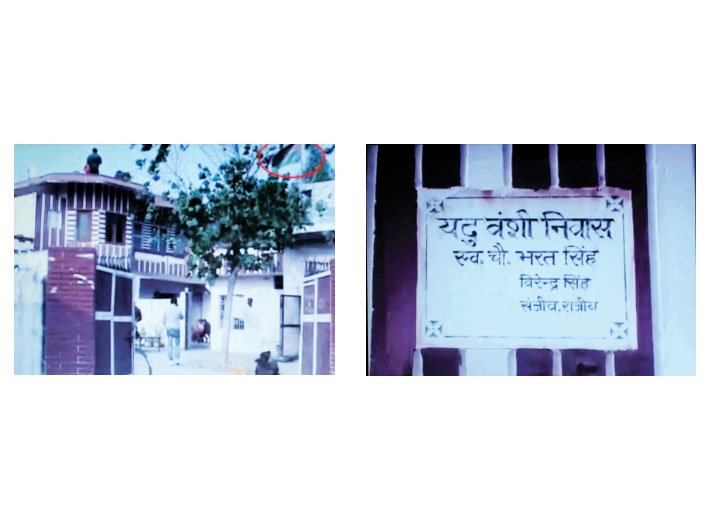Uttar Pradesh chief minister’s preference for Yadavs lands him in one more controversy, this time over the appointment of Lokayukta
In October last year, the Akhilesh Yadav government faced a major embarrassment when the Allahabad high court annulled the appointment of Anil Yadav as chairman of the UP public service commission. It was acting on a PIL that brought to light his criminal antecedents which had been suppressed by police. This, however, failed to stop Akhilesh’s penchant for placing people of his community in key positions. Thus, on January 20, the supreme court rapped the UP government for misleading it in the appointment of the Lokayukta – by pushing its choice before the apex court without telling it that the chief justice of the high court had objections to that name.
For more than a year now, Akhilesh has been at loggerheads over this issue with governor Ram Naik, Allahabad high court chief justice Dhananjaya Y Chandrachud and leader of opposition Swami Prasad Maurya of Bahujan Samaj Party. The selection process started in November 2014 with the name of justice (retd) Ravindra Singh and boiled down to the name of justice (retd) Virendra Singh – both are from the Yadav community. The selection process remains stalled thanks to unprecedented moves from the state, and meanwhile the outgoing Lokayukta, justice NK Malhotra, continues in office, even though his extended tenure of eight years got over more than a year ago.
Akhilesh, like his father and Samajwadi Party chief Mulayam Singh Yadav, has a penchant for promoting his community. But the fact that both the names proposed so far are from that community has startled many.
According to UP Lokayukta Act of 1975, the ombudsman will be appointed by the governor only after a consensus among the CM, the leader of opposition and the high court chief justice.
The opposition parties of the state have been crying foul, accusing the government of trying to place on this post a party loyalist who cannot be expected to conduct fair investigation in any cases of corruption against the ministers of the present establishment in the next eight years of his tenure.
The process started in November 2014 when the government sought the names of high court judges who retired between January 1 and December 31, 2014 and those retiring in 2015. The CM and Maurya first met that month, and the chief secretary then sought from the high court registrar general the names of the judges who met the criterion. In January 2015, the CM sent a letter to the high court chief justice, informing him that he and the Maurya had chosen justice Ravindra Singh as the next Lokayukta.
Justice Chandrachud wrote back, saying that after the UP Lokayukta (Amendment) Ordinance 2012 had been promulgated, the tenure of the Lokayukta had been increased to eight years and thus it was important to shortlist some names and a final choice should be made by the selection committee, on the basis of merit and integrity of an individual.
On April 10, the CM sent another letter to justice Chandrachud, reiterating the name of justice Ravindra Singh. He referred to the minutes of the meeting between him and Maurya. But justice Chandrachud informed the CM that the list he and Maurya had considered was factually incorrect and of the 396 names of former judges of the high courts and supreme court, 30 had passed away.
Justice Chandrachud also pointed out that justice Ravindra Singh belongs to Mainpuri, the home district of Mulayam Singh Yadav, and his brother and two sons were on the panel of lawyers for various departments of the state government. He thus rejected the nomination of justice Ravindra Singh saying that a person who has close affiliation to the ruling party should not be made the Lokayukta.
It was in June 2015, when the CM shot a letter to the chief justice asking him to agree on the name of justice Ravindra Singh saying that the UP Lokayukta Act did not prescribe any specific procedure and that it would not be correct to limit it to any fixed selection process. But justice Chandrachud rejected the name again.
In the meantime, justice Ravindra Singh retired from the high court and the six-month deadline to appoint a new Lokayukta in the state lapsed. A contempt petition was filed in the supreme court, which in turn asked the state to appoint a new Lokayukta within one month.
Akhilesh Yadav once again pressed for justice Ravindra Singh saying he had held a meeting with Maurya and the latter had no objection to his choice. It was then that governor Ram Naik stepped in and reminded the CM that there was no meeting of all three members of the panel and the word of the chief justice was a must. The governor termed the moves of the state government as acts of adamancy. On August 24, the state government surprised all by bringing an amendment bill removing the requirement of the chief justice of the high court in the selection of the Lokayukta. The bill was passed by both houses of the state and sent to the governor for his approval but Naik preferred to hold it in abeyance.
During this time, clash between the governor and the state government was quite visible as Naik sent the file of the appointment of the ombudsman back to the office of the CM and said that he was not bound by the recommendations of the state cabinet.
There was another meeting between the chief justice and the CM in September, but the deadlock continued. The chief justice placed on record his reservations in the selection process of the Lokayukta. On December 14, the supreme court ticked off the state government on this issue and gave it a time of two days to select the new Lokayukta.
The CM, leader of the opposition and the chief justice had a five-hour meeting on December 15 but failed to reach a consensus. They met the next day too but the meeting ended without any conclusion.
Meanwhile, the supreme court was handed over a list of five names claiming that these names had been finalised by the selection committee. The apex court was told that the chief justice of the Allahabad high court did not recommend any name. From this list, the supreme court chose the name of justice Virendra Singh.
But justice Chandrachud shot a letter to the governor that the CM proposed the name of justice Virendra Singh though he (the chief justice) had objected to this name on “grounds of integrity” as he was already working as the president of the state consumer dispute redressal commission, and his son was an active office-bearer of the ruling party. On December 29, the state government issued a press release stating that justice Virendra Singh’s was the first name to be discussed at the meetings on December 15-16.
Maurya also jumped in the fray and said that chief justice Chandrachud had objected to the name of justice (retd) Virendra Singh. He even said he was willing to give his nod to any name mutually agreed upon between the CM and the chief justice, but this did not happen at all.
The governor returned the file on appointment of justice Virendra Singh as Lokayukta stating that he was not accepting it from the state government as the copy of the supreme court order had not been attached with it.
Finally, the appointment of justice Virendra Singh as the new Lokayukta was stayed by the supreme court, hours before the oath ceremony, as the appointment had been challenged through a PIL.
Justice Chandrachud also said that the state government had failed to inform the supreme court that the three-member committee had nearly finalised the name of justice AN Mittal, a sitting judge of the Allahabad high court. As justice Mittal is due to retire on December 4, 2016, the only modality left to be worked out was how soon he could opt for voluntary retirement to take up the post of Lokayukta.
Legal luminaries are also not happy over the controversy. Justice (retd) DP Singh laments that “no one wants a candidate on merit as such a person would be independent, firm and honest. But in today’s system no one wants such a person.”
BJP’s state spokesperson Vijay Bahadur Pathak says that in its election manifesto, the Samajwadi Party had promised to give the state a powerful Lokayukta. “Is this how they are going to fulfill their promise,” he asks.
Meanwhile, this is not the first time there is a tug-of-war between the CM and the governor. On March 15, 2012, the day Akhilesh assumed the office, the six-year term of the Lokayukta, justice (retd) Malholtra, came to an end (he had been sworn in as Lokayukta on March 16, 2006 when Mulayam was the CM). The first major step the new government took was to seek an extension of two years for him from Raj Bhawan.
The then governor, BL Joshi, turned down the proposal. It was only after the CM himself went to Raj Bhawan and met the governor on March 22 that approval for the UP Lokayukta (Amendment) Ordinance 2012 was granted. And by default though, justice Malhotra is still continues.
This was only the second time that a Lokayukta has been given extension. It was done for the first time in 1986 when the then Lokayukta, justice Murtaza Hussain, had been given extension by chief minister Vir Bahadur Singh.
feedback@governancenow.com
The Supreme Court on January 28 appointed justice Sanjay Mishra as UP Lokayukta
(The column appears in the February 1-15, 2016 issue)

